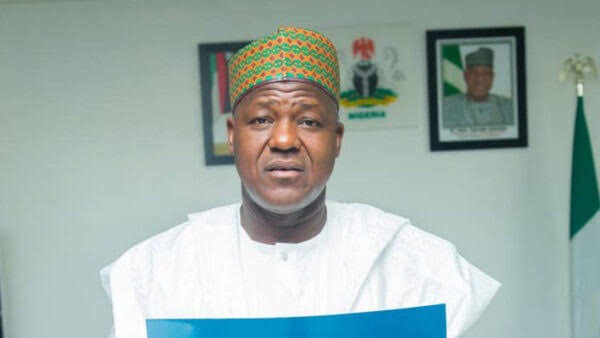Yakubu Dogara, the former Speaker of the House of Representatives, has voiced deep concerns about Nigeria’s persistent struggles with national unity and the alarming rise of secessionist movements. He argues that the nation has failed to learn the crucial lessons of its devastating Civil War, which ended in 1970. The emergence of groups advocating for separation, such as the Movement for the Emancipation of the Niger Delta (MEND), the Niger Delta Frontier Force, the Indigenous People of Biafra (IPOB), and the Oduduwa People’s Congress, serves as stark evidence of this failure. Dogara contends that these movements are a direct consequence of ineffective nation-building since independence, leaving many citizens feeling marginalized and excluded from the Nigerian state. This sense of alienation fuels discontent and ultimately pushes some towards seeking separation as a solution.
Dogara’s concerns extend beyond secessionist tendencies to encompass the broader issue of escalating insecurity across Nigeria. He points out that the nation has experienced a surge in violence and terror since the return to democracy in 1999. The Boko Haram insurgency, originating in Borno State in 2009, has morphed into a significant international terrorist threat, displacing millions and claiming thousands of lives. At one point, Nigeria even held the grim distinction of being the third most terrorized nation globally. This pervasive insecurity is further compounded by the breakdown of law and order, leading to a proliferation of criminal activities like kidnappings for ransom, banditry, and armed robberies. Ethnic and religious tensions add another layer of complexity, frequently igniting violent clashes and exacerbating the existing instability.
The former Speaker attributes these multifaceted challenges to a fundamental flaw: ineffective governance and a lack of adequate response to the underlying grievances fueling discontent in various regions. He believes that successive administrations have failed to address the root causes of these problems, opting instead for superficial solutions that fail to tackle the deeper societal issues at play. This failure to address the core drivers of conflict has created a breeding ground for instability, allowing secessionist sentiments and insecurity to fester and grow.
Central to Dogara’s argument is the critical importance of achieving genuine unity in Nigeria. He laments that despite decades of independence, the nation has struggled to integrate its diverse population, a failure that has directly contributed to the rise of separatist movements. The feeling of marginalization and exclusion from the Nigerian state experienced by various groups fuels the desire for secession. Dogara emphasizes that without sincere efforts to address the root causes of these grievances, Nigeria risks further fragmentation and instability. He sees the current trajectory as a dangerous path, one that could lead to further violence and division if the underlying issues of national unity are not confronted.
Furthermore, Dogara highlights the potential role of religion in the nation-building process. He acknowledges Nigeria’s rich religious diversity, primarily composed of Christianity and Islam, and argues that these faiths could be powerful forces for peace and unity. He believes that by harnessing the shared values and principles inherent in both religions, Nigeria could cultivate a stronger sense of national cohesion and overcome the divisive forces pulling the country apart. However, he cautions that this potential can only be realized through genuine efforts to address the root causes of conflict and promote interfaith understanding. Without such efforts, religious differences could further exacerbate existing tensions.
Dogara’s address, delivered at the World Interfaith Harmony Week Conference and Awards at the University of Ibadan, was attended by prominent figures, including former President Olusegun Obasanjo, former Ogun State Governor Otunba Gbenga Daniel, Sultan of Sokoto Alhaji Muhammad Sa’ad Abubakar, and the President of the Christian Association of Nigeria, Most Rev. Daniel Okoh. The presence of these influential leaders underscores the significance of the issues raised by Dogara. During the event, Obasanjo delivered a paper emphasizing the importance of love for God and neighbor, reinforcing the theme of unity and peace. His message resonated with the overall tone of the conference, highlighting the urgent need for reconciliation and understanding in Nigeria. Both Obasanjo and Daniel were honored with awards recognizing their contributions to peace-building efforts, further emphasizing the importance of their roles in promoting national unity.














